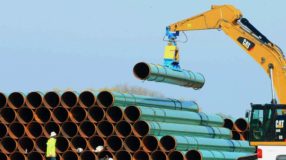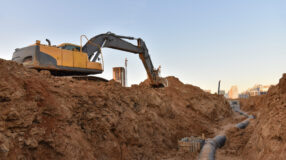The Natural Gas Council, which collectively represents companies that produce, transport and deliver clean, affordable natural gas throughout the United States, today released a joint report, “Natural Gas: Reliable and Resilient” that provides a practical guide to the operational measures, physical characteristics and contractual underpinnings of the natural gas system’s exceptional record of reliability and resilience. The heads of the five associations comprising the Natural Gas Council made these comments about the white paper:
Barry Russell, President and CEO of Independent Petroleum Association of America, which leads the Natural Gas Council in 2017, said:
“America’s natural gas producers have led a revolution in unlocking the enormous energy potential from shale development. Independent producers account for 85 percent of American natural gas. The benefits of using this abundant, clean-burning resource have been significant: supply security, lower air emissions, reduction in electricity prices. Such benefits can and should continue with greater reliance on natural gas by electric generators. Given the reliability of the nation’s producers, pipelines and distribution network, natural gas should remain an integral component of the electric generation portfolio. The findings in this study provide specific recommendations on how the electric industry can take full advantage of America’s natural gas resources.”
Dave McCurdy, President and CEO of the American Gas Association, said:
“Natural gas utilities develop comprehensive plans and manage assets, operations and contractual portfolios that include physical firm natural gas supply arrangements, firm natural gas transportation contracts and firm natural gas storage to provide their customers and communities with the safe, reliable delivery of natural gas. Additionally, all along the natural gas supply chain, from production to end-use delivery, the industry employs a portfolio of tools to help ensure protection of its facilities from both and physical and cybersecurity threats. As with pipeline safety, natural gas utilities apply layers of resilience for cybersecurity by employing firewalls and other tools to improve the prevention, detection and mitigation of cyber penetration. Importantly, given that natural gas delivery systems are mechanical by nature, they can still be run manually, if necessary.”
Jack Gerard, President and CEO of the American Petroleum Institute said:
“Clean-burning natural gas impacts virtually every aspect of our daily lives. This affordable energy resource has lowered costs for consumers and manufacturers and as this report confirms, provides a reliable source of energy for electricity generation that has powered countless communities across the nation. Moving forward, we must embrace this abundant energy resource for the continued benefit of American workers, consumers, and the environment.”
Don Santa, President and CEO of the Interstate Natural Gas Association of America, said:
“The physical characteristics of both the natural gas resource and the pipeline delivery infrastructures make our nation’s natural gas system uniquely reliable. Production is dispersed across many states and regions and is further spread across thousands of individual wells. In the aggregate, the United States’ many natural gas transmission pipelines comprise an interconnected, nationwide network that offers multiple pathways for rerouting deliveries in the event of a disruption. Our natural gas pipelines are the envy of the world.”
Dena E. Wiggins, President and CEO of the Natural Gas Supply Association, said:
“Natural gas continues to experience such tremendous growth, both in supply and demand, that there’s tremendous thirst for knowledge from our customers about how we achieve reliability. As an industry, we are proud of what we consider a remarkable record of reliability and wanted to produce a resource that explains the physical characteristics, operational practices and contractual obligations that make that record possible, along with information about programs underway to further strengthen our systems.”
The complete Natural Gas Council White Paper can be found at this link.







